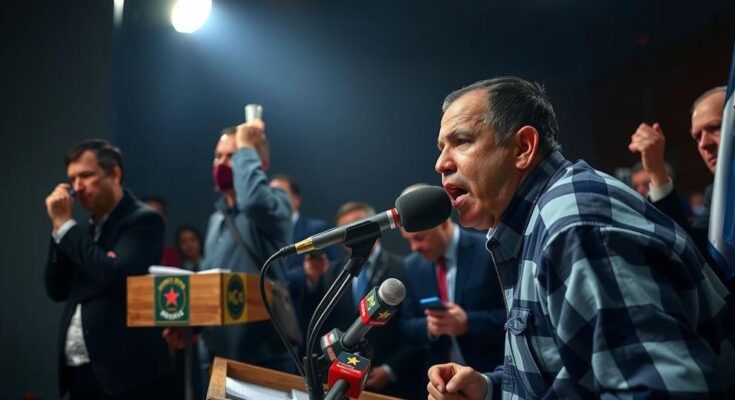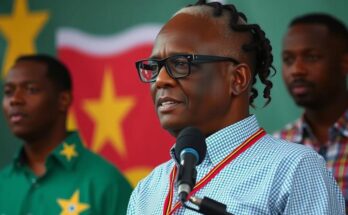The presidential runoff in Uruguay features a tight race between National Party candidate Álvaro Delgado and Broad Front’s Yamandú Orsi. Following the first round where Orsi led with 44%, the second round reflects concerns over crime rates and fiscal responsibilities. Both candidates present contrasting agendas amid widespread voter indecision as election day approaches.
Uruguay’s presidential runoff election is set to feature a close contest between incumbent National Party candidate Álvaro Delgado and Yamandú Orsi of the Broad Front coalition. This election follows a first round of voting on October 27, 2024, where Orsi received 44% of the votes while Delgado secured 27%. The National Party, buoyed by support from other conservative parties, now has a slight edge in the runoff. The campaigns have been characterized by a focus on key issues, notably public safety amid rising crime rates and fiscal policy, although both candidates have faced challenges in motivating a historically apathetic electorate.
Delgado, a seasoned figure of the National Party, has vowed to continue the policies of President Luis Lacalle Pou, who enjoys high approval ratings despite prior scandals. He promotes a pro-business agenda and potential trade agreements, including with China. In contrast, Orsi, viewed as a successor to former President José Mujica, proposes tax reforms to stimulate investment and reform social security without significantly altering the current pension structure. Voter sentiment remains divided, with a significant percentage still undecided as the election approaches.
Uruguay’s upcoming presidential runoff on November 24, 2024, has emerged unexpectedly engaging, pitting the conservative National Party against the left-leaning Broad Front coalition. This election is significant following a period of leftist governance that ended in 2019. The campaign topics reflect current concerns such as crime rates and fiscal management, distinguishing this election from the more extreme populist movements seen globally. Analysts note that voter indecision runs high, emphasizing the intertwined fates of the candidates with the conservative legacy of President Lacalle Pou.
As Uruguay prepares for a pivotal presidential runoff election, both candidates present distinct visions for the future of the country. Álvaro Delgado represents continuity and stability, whereas Yamandú Orsi seeks to propose progressive reforms. The outcome will be influenced not only by campaign strategies but also by the electorate’s responses to pressing issues such as public safety and economic policies. This election serves as a testament to Uruguay’s democratic resilience and the complexities of contemporary political dynamics.
Original Source: apnews.com



